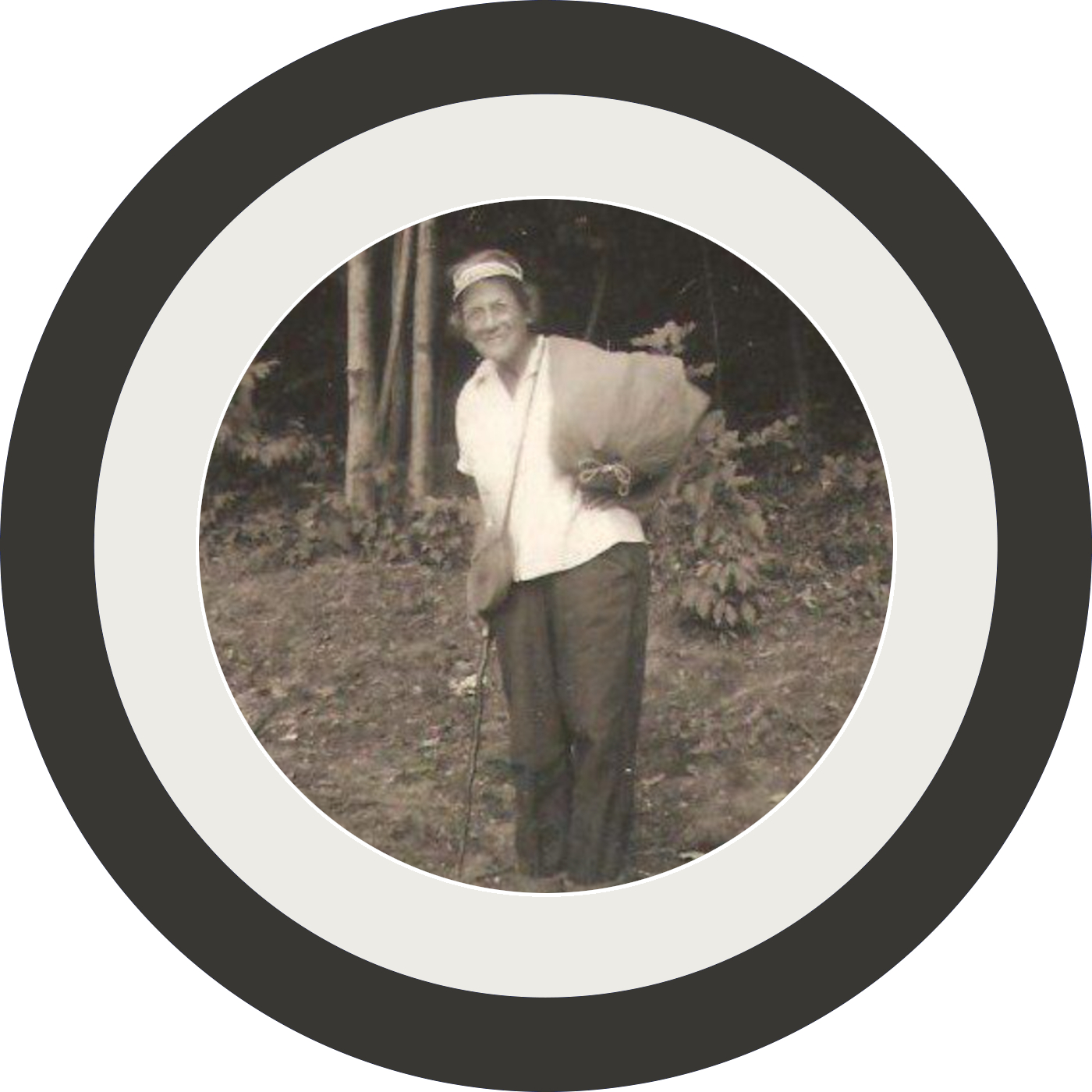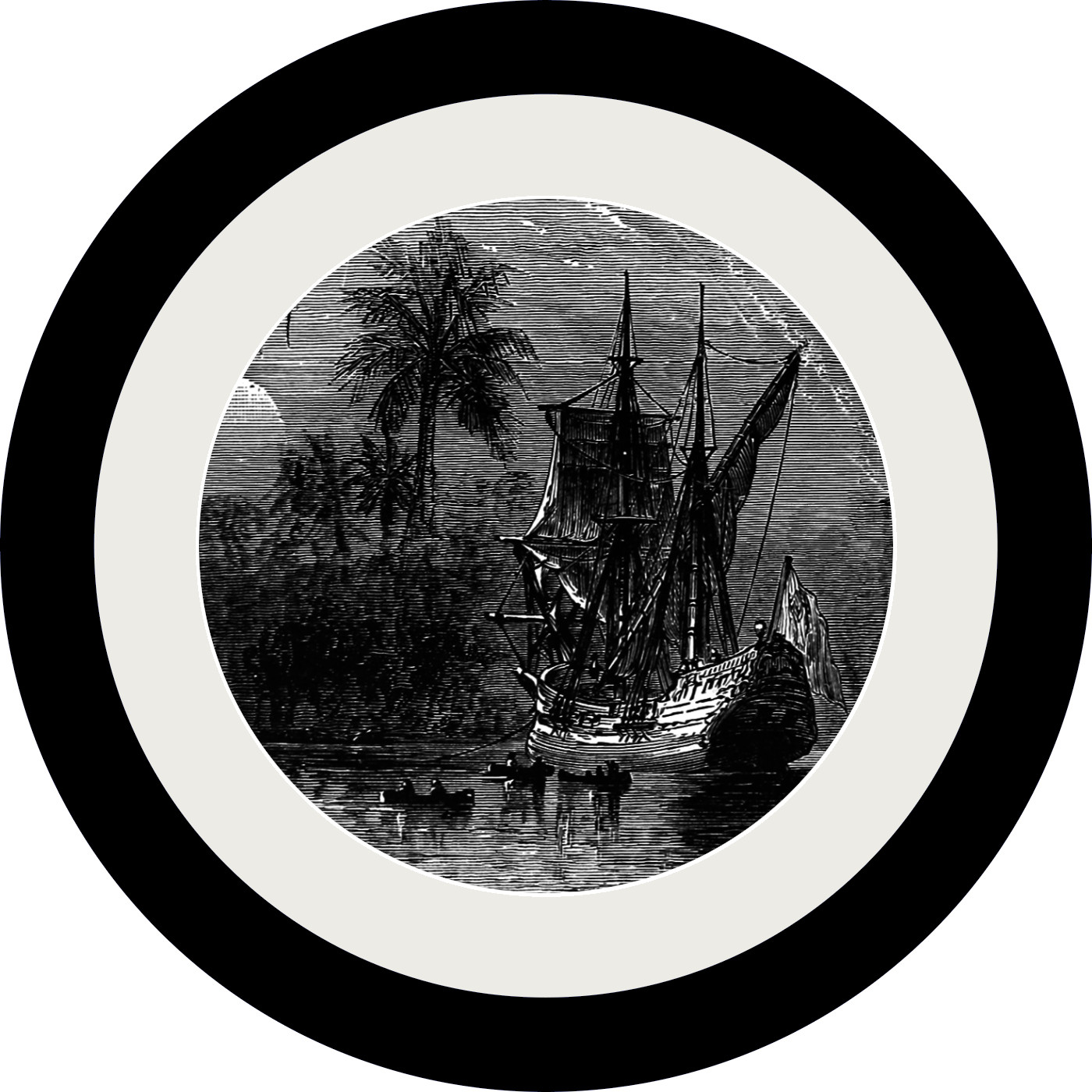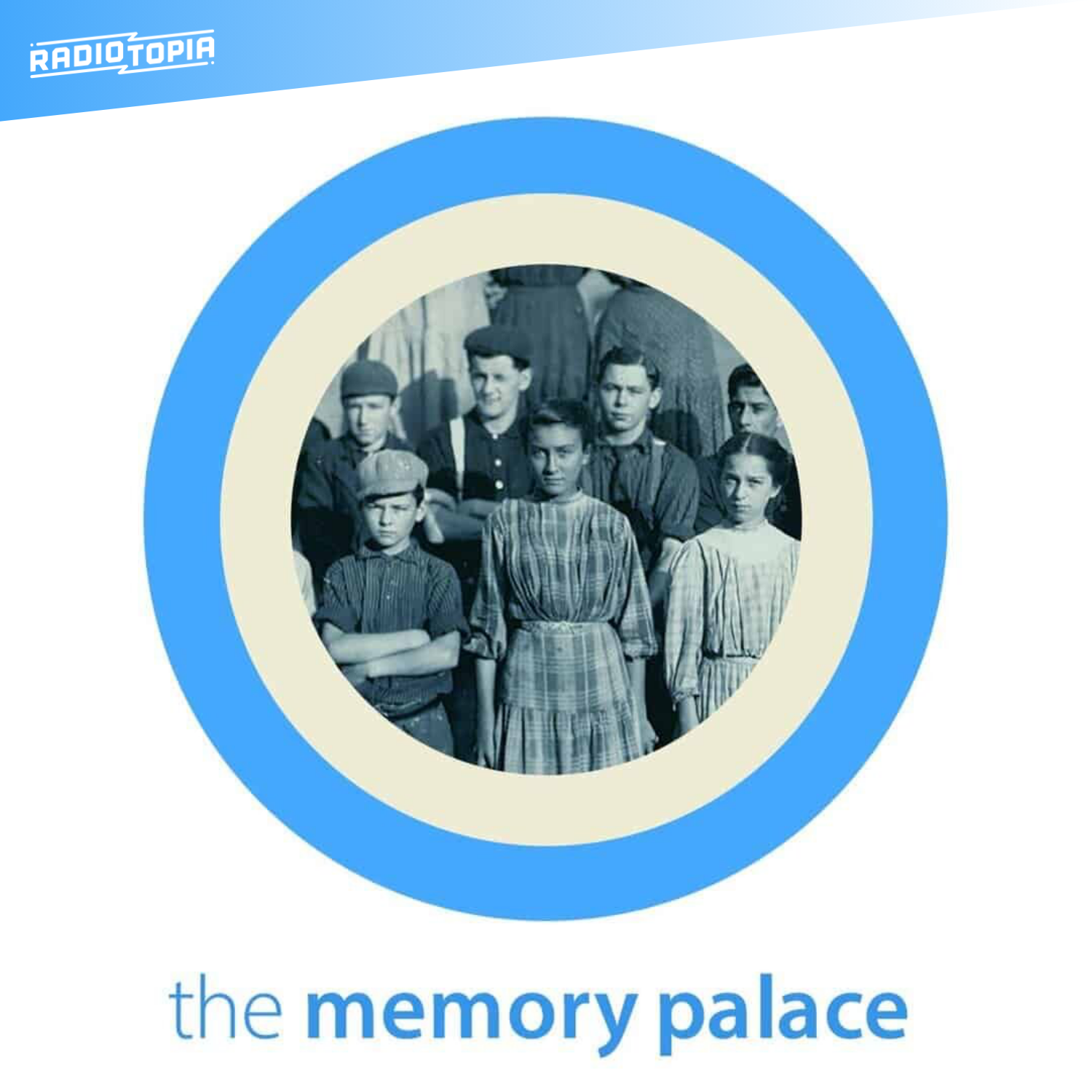Episode 229: Teammates
Order The Memory Palace book now, dear listener. On Bookshop.org, on Amazon.com, on Barnes & Noble, or directly from Random House. Or order the audiobook at places like Libro.fm.
During mid-April, 2025, I'm doing a southern book tour, with stops in San Antonio, Houston, Gainesville, Montgomery, New Orleans, and Oxford. Find out more at www.thememorypalace.us/events.
The Memory Palace is a proud member of Radiotopia from PRX. Radiotopia is a collective of independently owned and operated podcasts that’s a part of PRX, a not-for-profit public media company. If you’d like to directly support this show, you can make a donation at Radiotopia.fm/donate. I have recently launched a newsletter. You can subscribe to it at thememorypalacepodcast.substack.com.
Music
- La Copla from Atahualpa Yupanqui
- Yes, Brick by Brick and Waende by Caeys
- Space in Between by Federico Albanese
- Kieke by Shida Shihabi
Notes
- My favorite work on Mays is James Hirsch's glorious biography, Willie Mays: The Life, the Legend. I also recommend John Klima's Willie's Boys, about the Black Baron's 1948 season.
- If you're looking to get more context for the city during those years, I'd recommend Diane McWhorter's history, Carry Me Home.
Learn about your ad choices: dovetail.prx.org/ad-choices
Press play and read along
Transcript
Speaker 1
This episode of Memory Palace is brought to you by Progressive Insurance. You chose to hit play on this podcast today.
Smart Choice.
Speaker 1 Make another Smart Choice with AutoQuote Explorer to compare rates from multiple car insurance companies all at once. Try it at Progressive.com.
Speaker 1 Progressive Casualty Insurance Company affiliates not available in all states or situations. Prices vary based on how you buy.
Speaker 2
This show is supported by Odoo. When you buy business software from lots of vendors, the costs add up and it gets complicated and confusing.
Odoo solves this.
Speaker 2 It's a single company that sells a suite of enterprise apps that handles everything from accounting to inventory to sales. Odoo is all connected on a single platform in a simple and affordable way.
Speaker 2
You can save money without missing out on the features you need. Check out Odoo at odoo.com.
That's odoo.com.
Speaker 1 This is the memory palace. I'm Nate DeMayo.
Speaker 1
They were brothers. They would all say it.
And it is a thing that teammates say often of one another.
Speaker 1
But often it is true. In so many ways it is a kind of brotherhood.
It is love. It is rivalry.
It is bullying. It is support and mutual defense.
It is resentment. It is belief.
Speaker 1 And in Birmingham, Alabama, for the men who played baseball for the black barons of the Negro Leagues at the end of the 1940s, it was necessary.
Speaker 1 This was when the city they played in was first starting to be called Bombingham.
Speaker 1 It was a name that would get used a lot in the 1960s, when the city was one of the epicenters of the struggle for civil rights, especially after four girls were killed when a box of dynamite exploded beneath the front steps of the 16th Street Baptist Church, while 27 children were there getting ready for Sunday services.
Speaker 1 But historians think the name was first hung on the city in the summer of 1948, after the United States Supreme Court ruled that certain forms of housing segregation were unconstitutional.
Speaker 1 And the Ku Klux Klan, and just regular white citizens of Birmingham, started blowing up houses of black families who tried to live in what had been white neighborhoods.
Speaker 1 People were shot at, people were beaten, crosses were hammered into the lawns in front of the homes where black citizens lived, and lit on fire.
Speaker 1
That was the year that Willie Mays signed his first professional contract. He was still in high school.
He caught caught hell from his principal and his former coaches.
Speaker 1 Getting paid to play baseball for the Black Barons meant he couldn't play baseball or football or basketball for Fairfield Industrial High School. Willie's dad had known it since Willie was little.
Speaker 1
He was a prodigy, his kid. His hand-eye coordination, his speed at five years old.
It was like nothing folks had ever seen in a boy that young. Kat Mays, Willie's father, taught him the game.
Speaker 1 Not just to hit and run and throw, but to field every position.
Speaker 1 Because he could, could, his dad, which meant that anytime some semi-pro team called Kat Mays up, needed an extra guy, it didn't matter what they were looking for. Shortstop, catcher, right field.
Speaker 1 He would be able to say yes.
Speaker 1 And when they passed around the hat at the end of the game, he'd come home with cash that meant the next time the foreman at the mill wanted him to work an extra shift, he could say no.
Speaker 1 Kat Mays wanted a better life for his son than the misery of the mills. Brutal work, bigoted bosses.
Speaker 1 And when the Black Barons came calling with a contract for his son to sign, Kat May has grabbed a pen.
Speaker 1 To be a black baron in Birmingham at the end of the 1940s. To walk up 4th Avenue on game day in full uniform, home whites, kids running to be beside you, just wanting to be around you.
Speaker 1 You would get gifts and free meals and drinks on the house at the best black-owned businesses in town, get the attention of the prettiest single women, get to play under the lights at Rickwood Field.
Speaker 1 It was the finest stadium in all of the American South.
Speaker 1 Perfect sight lines, an overhang that kept the fans in shade, natural acoustics that somehow made the roar of the crowd all the louder, the crack of the bat crisp and clear.
Speaker 1
But it wasn't owned by the Black Barons, but by the white team. They were just the Barons.
No need for any other designation in a world where whiteness rules.
Speaker 1 The Birmingham Barons were a minor league affiliate of the Boston Red Sox, who in 1948, the season after Jackie Robinson broke the color barrier in the major leagues, were still a full 11 years away from fielding its first black player.
Speaker 1 The Black Barons were the second tenant at Rickwood Field, and second-class citizens. They had to pay rent, and that meant they couldn't afford good equipment.
Speaker 1 It also meant that they had to clear out when the Barons were in town, meant their schedule was ridiculous and arduous, had them driving all over creation to get to away games, and then having to rush back home.
Speaker 1 They often had to practice across town, and even when the Barons were on the road, the Black Barons couldn't shower where the Barons showered, couldn't use their locker room.
Speaker 1 Black fans had to sit in segregated sections, use segregated bathrooms.
Speaker 1 But to be a Black Baron, at the center of Black life, in Birmingham, to be a symbol of pride, an engine of joy in a dark and terrible year, in a terrorized community.
Speaker 1 Things were different on the road. Willie Mays needed his teammates.
Speaker 1 Men who had done this before, knew which hotels would take them, which families would let them sleep on a floor or in a hayloft when there were no hotels that would, which restaurants would serve them, which bars, who knew which towns were safe, and which ones you never stopped in, no matter what.
Speaker 1 The Birmingham Barons took the train.
Speaker 1 The Black Barons had a rattling bus they called Old Bessie, took it to play the Memphis Red Sox, the Indianapolis Clowns, the far-flung teams of the Negro Leagues.
Speaker 1 Some nights they would drive straight through till dawn, rather than pay for a hotel. Then the guys would get up, stiff and sore from sleeping, sitting up,
Speaker 1 and then go and put on a show.
Speaker 1 That's if they got there. Sometimes Old Bessie would break down, leave them sweltering by the side of the road for hours.
Speaker 1 Sometimes they'd show up at a motel, black-owned, they'd been there before, but still they would get turned away. The management would be all apologies, but there had been threats.
Speaker 1 Bombs, arson, and you took those threats seriously.
Speaker 1 But there were good people on the road. People who would sneak them takeout from the kitchen in the back.
Speaker 1 In Detroit, a Black Baptist church would make them meals, meet them at the bus, let them rest in the rectory. And on the bus, they had each other.
Speaker 1 They had songs and dirty jokes, endless card games, advice on how to juggle multiple dates, how to hit an inside fastball, someone to talk to when you'd get off the phone with your mom, who told you about your neighbor, or the guy who cut your cousin's hair, who got jumped in the street.
Speaker 1 or would spend the night trying to comfort his kids while a cross burned outside their bedroom window.
Speaker 1 Decades later, when Willie Mays had retired, having earned just about every accolade a ballplayer could have, after one of the greatest careers in the history of the game, as a beloved cultural figure, a hero to millions, of all races,
Speaker 1 he would look back on the two summers he played for the Birmingham Black Barons, 48 and 49, when he was seeing the country for the first time.
Speaker 1 Still a high school kid. coming home from New York or Philadelphia, and then learning from his teacher about the Liberty Bell, and telling his classmates that he had been there, he had seen it.
Speaker 1 There really was a crack.
Speaker 1 Those summers when he was first being paid to play a game he loved, and getting to be around those men, being looked after by those men, so many of whom would have been stars like he had been, would have gotten rich like he did, had they been born just a little bit later, who hadn't been kept out of the major leagues on account of color.
Speaker 1 They were his brothers.
Speaker 1 In 1950, he took his first trip without them. Willie Mays received $4,000 to sign with the New York Giants organization.
Speaker 1 This was a lot of money, commensurate with his status as a likely future superstar.
Speaker 1 He could have slid right into the lineup immediately on the strength of his defense alone, but he was still having trouble hitting breaking balls.
Speaker 1 A little time in the minors would serve him well, and he had never played on an integrated team before. The organization wanted to ease him into the new realities of his new life.
Speaker 1 And so at 18, Willie Mays took a train to join his new team in the Interstate League, two steps down from the majors, playing center field for the Giants of Trenton, New Jersey.
Speaker 1 He was to go straight to Municipal Stadium in Hagerstown, Maryland, home of the Hagerstown Braves, just a few blocks up Memorial Boulevard from Rosewood Cemetery, where a monument stood to honor the town's Confederate dead.
Speaker 1 He was picked up at the train station.
Speaker 1 The game was already underway, and he was brought straight to the locker room where his uniform hung waiting for him, the number 12 on the back and he got dressed and he spent the next couple hours watching the game from the bench surrounded by white players and white coaches he didn't know from Adam in doing so he became the first black player to suit up for a game in the league's history the next night he would be in the lineup for the first time
Speaker 1 but that night after the game he got on the bus with his new teammates
Speaker 1 These strangers, and drove off with them to their hotel.
Speaker 1 But first it stopped and dropped Willie off at his.
Speaker 1 It was a nice place, the Harmon Hotel, around the corner from the Zion Reformed Church where Robert E. Lee stayed during the Confederate occupation of Hagerstown.
Speaker 1 It was clean and comfortable and a significant step up from any place the Black Barons could ever afford as they zigzagged the country. But Willie Mays was alone in his room on the third floor.
Speaker 1 It had been the longest day. He turned off the lights and got into bed and fell asleep.
Speaker 1 And then after midnight,
Speaker 1 he was woken by a sound at the window.
Speaker 1 Someone was out on the fire escape.
Speaker 1 Three white men in the dark opening his window and climbing inside.
Speaker 1 New teammates.
Speaker 1 They wanted to make sure he was okay.
Speaker 1 He said he didn't need their help.
Speaker 1 They knew otherwise.
Speaker 1 They slept on the floor, woke before dawn, slipped back out the window rather than get caught for breaking the same segregation laws designed to keep people apart.
Speaker 1 Willie saw them later that afternoon in the locker room.
Speaker 1 They just gave him a nod and smiled.
Speaker 1 Talked about nothing but baseball.
Speaker 1 This episode of The Memory Palace was written and produced by me, Nate DeMayo, in April of 2025, just as the baseball season gets started. This show gets research assistance from Eliza McGraw.
Speaker 1 It is a proud member of Radiotopia, a network of independent, listener-supported podcasts from PRX, a not-for-profit public media company.
Speaker 1 I want to tell you about a new project from a dear friend and fellow Radiotopian. Rishi Keshi Hirawe is bringing a new spin on his beloved Song Exploder project with a new show.
Speaker 1 It's called Key Change.
Speaker 1 And it features intimate, long-form conversations between Rishi and wonderful guests. talking about the music that made them.
Speaker 1 You are going to want to check this out. Head over to radiotopia.fm to learn more about it and all the Radiotopia shows.
Speaker 1 If you ever want to drop me a line, you can do so at nate at thememorypalace.us.
Speaker 1
You can follow me on Twitter and Facebook at TheMemory Palace. On Instagram and Substack at the Memory Palace Podcast.
And on Blue Sky at NateDeMayo.
Speaker 1 Again, this episode is coming out at the beginning of April 2025, and I say that because what used to happen is I wouldn't, and I would say something like I'm about to about some upcoming appearances, and people would hear it and say wait I thought you were gonna be in Chicago and I'd say yeah that was six years ago so now I do this so I am heading to San Antonio Houston New Orleans Oxford Mississippi Montgomery Alabama and Gainesville Florida in the coming weeks you can find out more about where and when at thememorypalace us slash events I've also got a few Midwestern dates cooking for May and hopefully the Pacific Northwest this summer at a bookstore near you reading from and signing my new book, and answering your questions, and just getting to say hello.
Speaker 1 If you live there, please come on out or please help spread the word if you are able, and I will talk to you soon.
Speaker 1 Radio Tokyo
Speaker 1 from PRX.





